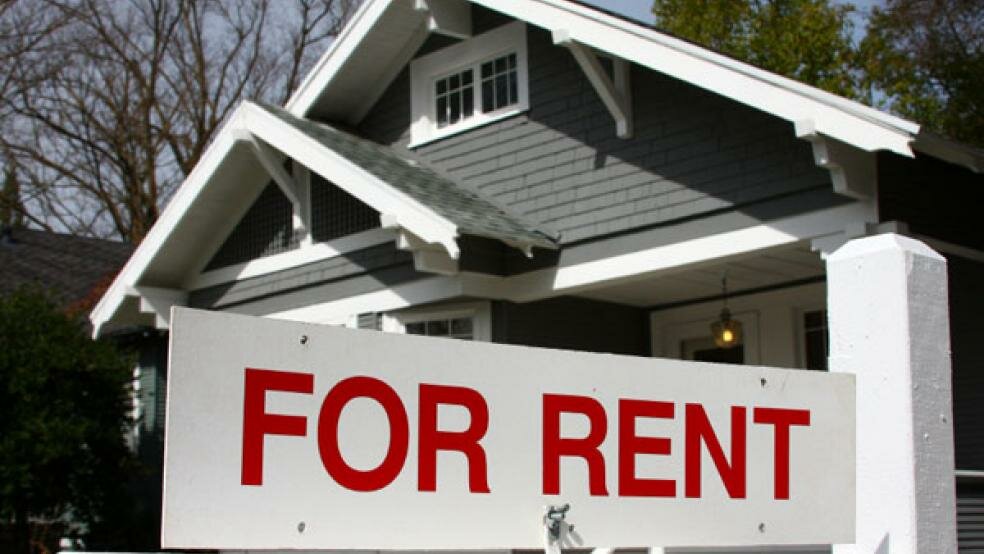Ask Brian is a weekly column by Real Estate Expert Brian Kline. If you have questions on real estate investing, DIY, home buying/selling, or other housing inquiries please email your questions to [email protected].
Question from Becky of Huntsville, AL: Brian, I began investing in real estate in 2014. As a beginner, I made several mistakes that I have learned from. Probably the most important lesson I learned is to ask more questions and do more research before jumping into a deal. My first two investments were flips. The first one was with a partner that had some experience and it went relatively well. We had a couple of bumps in the road from unexpected problems but in the end, our profit was everything we thought it would be. Part of our good luck was because property values were appreciating pretty fast and demand was high. On my second deal, I went it alone. It was a lot more work doing it alone but I stuck with what I learned from the first deal and my solo project turned out fine. Thinking I had enough experience, I changed my strategy quite a bit on my next two deals. Specifically, I bought two houses to flip almost at the same time using profits from the second deal. Where I mostly changed my strategy was buying both houses in a rundown part of town so that I could afford two at the same time. I managed to flip one by squeezing a small profit out of it but the other house I ended up renting, otherwise I would have lost money on a sale. And the rental isn’t doing very well either. In the last 18 months, I’ve had 3 tenants and the second one left me with $2,400 in repair bills. Sorry my story got so long but I wanted you know my experience level.
Although my rental experience hasn’t been good, I want to stay in real estate and today I think that rentals are the way to go. There are two things I want to figure out before I invest in another rental property. First, how do I find a good rental neighborhood? Second, what research should I do so that I earn the most rental income? Brian, thanks in advance for answering.
Answer: Hi Becky, thanks for writing and including your background information. Sorry you had a bad experience with your first rental but I think you’re on the right track. With the sales market slightly softening and the rental market remaining strong, choosing rentals over flips is probably a good idea as an investor. Although I’ve never walked the neighborhoods in Huntsville, I don’t favor the run down part of towns for investing unless there is an established trend to rehabilitate it. Otherwise, it’s most likely to continue deteriorating until it becomes a “gang war zone” if it isn’t already. However, I draw a distinction between war zones and lower income working neighborhoods. Working class neighborhoods can be a great place to find low cost rental investments where vacancy rates are low and tenants stay in place for several years. The best way to distinguish the difference is by getting out and walking the neighborhood. Of course, a lot of boarded up and vacant houses is a bad sign. Some investors like to talk with other landlords in the area, real estate agents, and property managers. This isn’t usually my preference because these people have a natural bias to put the best light on the neighborhood. I suggest an “informal survey” of your own. Knock on a few doors and try to catch people in their yards. Mail and delivery people can have good insight also. Ask locals how many people own their home compared to the number of people that rent. A good mix of both is best (60% owners and 40% renters). Also, ask how much rent is averaging and learn the cost of ownership so that you know if renting and owning cost about the same. There’s a good reason for you to compare the cost of ownership to the cost of renting. When (or if) you decide to sell the rental, it’s much easier to sell when the costs are close to being equal. Especially if you can offer owner financing to a renter.
Also, don’t rule out more expensive neighborhoods. Because it’s become so difficult to buy a house, there are also good rental opportunities in middle class neighborhoods. Do the same “informal survey” to learn what houses are renting for and the ratio of renters to owners. In these neighborhoods, expect to see more owners than renters (maybe 80% owners and 20% renters). For the most part, you can expect long term tenants. However, something that you want to know about are Home Owner Associations (HOA) because most hold the owner (investor) responsible for any covenant violations rather than the tenants. Finally, unless you are really confident in what you are doing, it’s generally a good idea to stay out of upper and luxury neighborhoods. There are multitudes of reasons for this. Tenants in these neighborhoods expect the house to have all the latest gadgets and they expect everything to be in perfect working order at all times. That includes paying a plumber triple time to replace a failed water heater on a holiday. Also, these people generally aren’t long term tenants. If they can afford the high rent, they can afford to buy something nearby. Not only will you have a higher turn over rate but also you’ll have more expenses making everything shiny and new for the next tenant.
Becky, I hope this answers the basic questions you asked. However, keep in mind you still need to do all of your other due diligence to be sure your next rental will have profitable cash flow. For instance, the vacancy rate in Huntsville is running close to 11% (including apartments) which is about double the national average. Be sure the rent you can charge will cover the months the house will sit vacant.
Please comment with their thoughts and experiences about what should be consider rental houses. Our weekly Ask Brian column welcomes questions from readers of all experience levels with residential real estate. Please email your questions or inquiries to [email protected].
 Author bio: Brian Kline has been investing in real estate for more than 35 years and writing about real estate investing for 12 years. He also draws upon 30 plus years of business experience including 12 years as a manager at Boeing Aircraft Company. Brian currently lives at Lake Cushman, Washington. A vacation destination, a few short miles from a national forest. With the Pacific Ocean a couple of miles in the opposite direction.
Author bio: Brian Kline has been investing in real estate for more than 35 years and writing about real estate investing for 12 years. He also draws upon 30 plus years of business experience including 12 years as a manager at Boeing Aircraft Company. Brian currently lives at Lake Cushman, Washington. A vacation destination, a few short miles from a national forest. With the Pacific Ocean a couple of miles in the opposite direction.